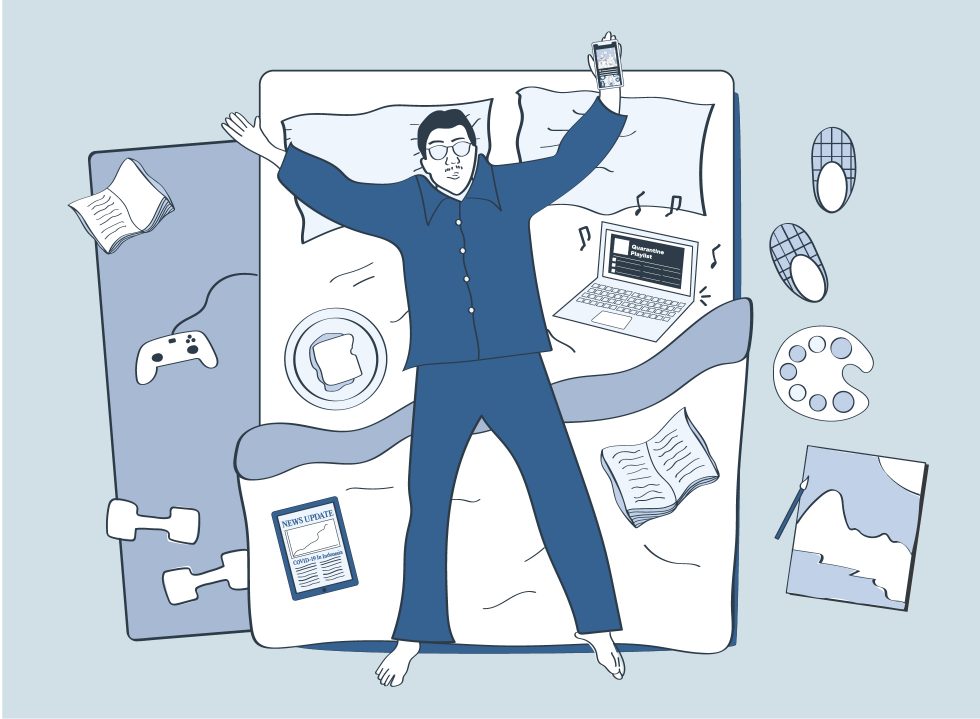If back then I was told to find my passion or follow my dreams, now they’re not enough. These last few years, I am also told to work harder and faster, ‘don’t stop when you’re tired, stop when you’re done’, or any other supposedly motivational phrase that encourages me to push myself to the limit. From entrepreneurs to self-help gurus, these ideas are reinforced through a barrage of social media posts that I cannot escape. Some call it ‘performative workaholism’, but to me, it’s a hustle culture so deeply rooted in the collective minds of our generation and one that needs to be reevaluated.
Now it’s not enough that we love our work, but we also need to dedicate our lives for the sake of working hard. To a certain extent, I agree that this attitude might bring me closer to my dreams. But at what cost? I have seen my peers on Instagram share about their hospitalisation, crediting the unfortunate incident to overwork and exhaustion but reporting it with a hint of pride. I have known people mentally suffering from the struggle of balancing work, family, hobbies and social life, trapped in the myth of work-life balance. As for me, I know this culture has cost me my own sanity and stripped me of the joy of my passion.
In many ways, I believe the premise of the hustle culture mirrors the values of growth we’ve shaped as a modern capitalistic society: the more we produce and consume, the economic wheel will work its magic to bring prosperity to everyone. Similarly, we place our faith in the power of hustling—work more, do more, be more—to elevate our sense of worth (financially and otherwise) and be happier. However, studies after studies have shown that despite currently living in significantly better conditions than our predecessors, this progress has not made a significant impact on our overall happiness. Arguably, it has worsened our prospects.
Because the numbers of mental health issues and suicide rates in recent decades have skyrocketed, I believe that our obsession with hustling, be it in the name of our careers or personal development, have driven us into a mental and spiritual crisis. Just in 2019, the World Health Organization classified ‘burnout’ as a diagnosable medical condition. This obsession was bound to be unsustainable.
With society ravaged by the hustle culture, the global pandemic put a mirror in front of us. Like many others in the world, I was forced to hit the brakes; no longer could I think about the fancy projects at work or all other personal goals I have set. My mind went to survival mode as I lowered my expectations for the future. From such isolation and deprivation came the moments of reflection.
I was confronted with questions like ‘is it normal to bust ourselves through hours of traffic when we can be just as good working from our home?’ or ‘will I still have the same values as a person without all the social interactions and recognition I used to have?’ and ultimately into the question of ‘what was all that hard work for?’ All the wealth, fame, status, and fulfilment that we have been chasing after were rendered meaningless by a pandemic that collapsed economies and shook societal threads in matters of weeks.
I’m not telling anyone to stop working hard, but rather be aware of why we do it. Giving up on dreams and ambitions is not the solution, rather, being mindful of our approach to pursuing them should precede our dedication. A sustainable lifestyle is something we owe to ourselves and our well-being. As we shift our mindset of insufficiency into a mindset of adequateness, we can put an end to this silent pandemic and leave the toxicity of the hustle culture behind us.
Ady Nugeraha is currently working as an Assistant Curator at Museum MACAN.







